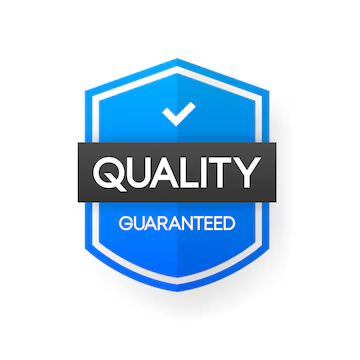Dear writer, I will attach article with title : ( RUSSIAS RELATIONS WITH GULF STATES AND THEIR EFFECT ON REGIONAL BALANCE IN THE MIDDLE EAST*) and I want you to do CRITICAL REVIEW for an article first, you need to do:
1- ( Summary ) Title, Source, Purpose, thesis, main points, evidence and argument(do argument very well)
2- (Analysis) Evaluate the article: Was it convincing? Why? Why not? Which part is strong/clear/weak/? Which appeals to you? Which points are useful or relevant? This is the most important section.
3- (Verdict )Should others read it? Why/Why not? Who should read it? Why?
I will attach also the rubric for grading and example of previous research so you can know the ways for writing. Kindly follow the rubric and please for each section put a title
Category: Law
Any topic (writer’s choice)
Research Project
Students will be required to locate and research one reentry program from any state other than Georgia. Quantitative data must be included in your summary; ie. The recidivism rate/success rate, etc. (In other words, we we are looking for statistical data indicating the program has been successful or not successful). You will simply be summarizing their program and whether or not it seems to be successful.
 May 6th, 2020
May 6th, 2020  APA, Law
APA, Law  Comments Off on Module 4: Challenge Impacting U.S. Intelligence Capabilities in Meeting Emerging Threats
Comments Off on Module 4: Challenge Impacting U.S. Intelligence Capabilities in Meeting Emerging Threats Module 4: Challenge Impacting U.S. Intelligence Capabilities in Meeting Emerging Threats
In previous Learning Modules, we explored some of the challenges the U.S. and its intelligence community faces in staying in front of the emergence of new technology and the ability to use social media (Module 3), addressing AI capabilities that seem to be improving beyond our imagination (Module 2), and the evolution of digital communications that provide global interconnectivity of U.S. adversaries (Module 1). We also examined some of the challenges we face when social media giants like Facebook are left to self-govern (Module 3).
In Module 4 we will take a look at three other digital communication challenges that threaten our Intelligence capabilities, including:
Legal, Moral and Ethical considerations in controlling the U.S. digital environment;
The challenge of controlling cyberwar tactics and the digital influence of powerful Nation States, such as Russia and China; and,
Challenges in controlling newly developing cyberwar skills of smaller, aggressive adversaries who have the same access to emerging technology, such as: Iran, North Korea, Saudi Arabia and rogue terrorists.
Consider the legal, moral and ethical concerns of using broader government control of the digital environment such as Privacy Rights and Social Media. How far should the Government go?
In Module 3, we observed Facebooks knowledge of vulnerabilities and the companys failure to act. Considering how widespread similar vulnerabilities maybe in corporations across the U.S., and the general laisse faire attitudes of businesses in addressing cyber threats, is there a need for stronger U.S. regulation and control to protect privacy rights and reduce unlimited access to social media?
See
https://thelatest.com/story/ai-us-spies-identify-8894351
https://www.wsj.com/articles/apple-ceo-tim-cook-calls-for-comprehensive-u-s-privacy-law-1540375675
https://www.pymnts.com/news/security-and-risk/2018/equifax-settlement-ny-ag-mobile-app-security/
1. Ethics and the Internet of Things
The Internet of Things (IoT) refers to a complex network of interactive and technical components that allow objects to communicate while also allowing individuals to use apps to perform unlimited things in businesses, their homes and in their communities. Yet, as IoT continues to grow and mature, little has been done to proscribe regulations that ensure IoT capabilities are enhanced with ethical considerations or that IoT opportunities cannot be used to open pathways to attacks through cyberspace. Is there a need for stronger federal policy and government regulation of the IoT environment? When considering this question, we may want to note that globally, upwards of nearly 27 billion mobile phones, containing countless apps can now be connected or manipulated.
See also:
https://cacm.acm.org/magazines/2017/2/212443-social-and-ethical-behavior-in-the-internet-of-things/fulltext
2. Consider the governments challenges in controlling Russias and Chinas digital influence in the U.S. and abroad:
The Senate Intelligence Committee published reports in December, 2018, detailing how Russian agents have controlled social media against Americans and how technology companies have done very little to help curtail it. According to the report, social media giants like Google and Twitter (similar to Facebook), have evaded and misrepresented themselves and the extent of Russian activity on their sites. This type of activity may also open pathways for China cyberwar tactics.
See:
http://rejuvenationmedia.com/tech-companies-dragged-feet-on-russian-interference-data-reports-say/
https://komonews.com/news/nation-world/russian-hackers-target-boeing-in-hunt-for-high-tech-us-secrets
https://www.reuters.com/article/us-czech-huawei/czech-cyber-watchdog-calls-huawei-zte-products-a-security-threat-idUSKBN1OG1Z3
https://www.nytimes.com/2018/12/03/technology/quantum-encryption.html
https://www.wsj.com/articles/u-s-probes-failed-boeing-satellite-deal-backed-by-china-11547248296
3. Consider government challenges in controlling access to emerging technology by smaller, aggressive nation state adversaries, such as North Korea, Iran, Saudi Arabia or any nation or terrorist group with sufficient funds to purchase technology.
See:
https://www.npr.org/2018/12/05/673958138/georgia-charges-iranians-in-ransomware-attack-on-atlanta
https://www.washingtonpost.com/opinions/2018/12/05/israel-is-selling-spy-software-dictators-betraying-its-own-ideals/?noredirect=on&utm_term=.cb0e7357c708
https://www.nytimes.com/2019/02/20/world/middleeast/saudi-arabia-pakistan-india-china.html
Let’s consider the last question offered during our reading assignment with a few extra thoughts.
Considering all that we have discussed, the global interconnectivity of our personal telephones, the vulnerable nature of our businesses and home systems to being attacked, cybercrimes and the control of cyber criminals my rogue nation states, the accessibility to systems to apply ransomeware and malware, and the general openness of the social media tools we use…
PROMPT: How can the Intelligence Community gather the intelligence from enough resources to ensure that the U.S. is not overly vulnerable or at a minimum, even in its most vulnerable state that the government knows “WHAT WE DONT KNOW” and can institute action to exert control or influence to counter possible impacts that could arise through IoT?
Please answer the above prompt by using the sources and articles cited above and please weave in points 1, 2 and 3 in answering the above primary question so it is a seamless and cogent response including all of the points the module touches upon.
Differing Views of the Juvenile Justice System
The juvenile justice system continues to evolve and separate juveniles from adults. With any evolution, there is always resistance to change, and, some can even say, fear of the unknown. According to Dharmbir Rai Sharma (n.d.), from a psychological perspective there is a kinship between fear and darkness: “Darkness implies ignorance in the sense that we cannot see anything, so we do not know what lies in there. This is perhaps the reason for a very widespread use of the phrase ‘fear of the unknown'” (para. 3).
Resistance comes with hesitancies when it comes to changing the way juveniles are adjudicated, treated, rehabilitated, et cetera. There could be deliberations on their placement (adult prison or juvenile detention facilities), treatment (if they could be rehabilitated), to name a few. There is always controversy over whether or not juveniles should be treated as adults.
For this discussion, read the following case vignette and answer the questions below. Use information from professional sources to support your thinking.
Chris has a significant delinquent history, including theft of property, breaking and entering, possession with intention to distribute, and domestic violence. Chris is 18 and is a few credits shy of obtaining his high school diploma. His probation officer knows that Chris has the potential to do well; however, he is easily influenced by the wrong crowd of delinquent peers/friends. Chris is currently charged with possession of a firearm, and the district attorney wants to charge him as an adult. His probation officer and attorney want him adjudicated as a juvenile and sent to a rehabilitation facility, as rehabilitation has not been a part of his treatment in the past.
What are some conflicts that may occur between law professionals and psychology professionals when it comes to juvenile defendants?
What case would you make for Chris from the point of view of a legal professional, or what case would you make from the point of view of a mental health professional?
Use no less than 2 sources
NEED IN 12 HOURS Or LESS
It would be interesting to learn from yourself or other fellow classmates about other examples of the how the criminal justice system has implemented the use of technology during the investigation of the prevention of criminal behavior. How would this use of technology relate to our study of sociological theory?
Criminal Justice Systems
n 1996 the U.S. Congress passed the Female Genital Mutilation Act, which, among other things, criminalizes circumcision of females under 18, requires federal health agencies to educate immigrants on health risks, and impose economic sanctions on countries that fail to take steps to prevent practices.
While many Americans are in agreement with the law, do you believe a country has the right to impose sanctions on another country for practicing a religious belief? Why or why not? And, at what point is intervention from perhaps another country or the United Nations warranted? Finally, do you believe it is possible to balance the sometimes competing interests between religious legal tradition and the pressures posed by modernization? Please provide examples to support your assertions!
For Sources use your textbook and an external source.
NEED “A” WORK DISCUSSION IN 12 HOURS Or LESS
The attached statistics from the Chicago Police Department’s COMPSTAT report give preliminary data on Chicago’s crime rates over the past few years (remember that 2020 is far from over).
What do you think is a possible solution to eliminate criminal behavior as the cause of death in the city of Chicago? In your response, consider that the city has the toughest gun laws in the United States.
Types of Crime
To better understand criminal behavior, we must also understand the elements of the crimes that are being committed. From this we can correlate crime and behavior while working toward predicting outcomes.
Use the theories presented in Weeks 1-3 to complete the assignment.
Choose three different crimes in these categories:
1 crime against persons
1 crime against property
1 drug-related crime
Answer the following prompts using 350 to 525 words for each crime chosen:
Define each crime and its elements using your home states( Florida) penal code (online) .
Evaluate each crime and determine which theory of criminality best applies. Explain your answer.
Speculate about what type of person is likely to commit the crime and why.
Cite your sources according to APA guidelines.
Any topic (writer’s choice)
The Legal Issue: What was the major legal issue that the Court needed to decide? What were the major federal or state statutes, regulations or judicial decisions involved in this case? Give the audience a good, concise summary of the legal
2
The Judicial Opinions: What did the majority hold? What did the dissent argue? How did the majority and dissent come to different opinions on the law? Try to translate the complex discussion of the law found in the judicial opinions into language that a welleducated and wellinformed.
Health Care Policy And Law
Assume that you are the CEO of multi-facility health care organization, and you have reviewed with your executive team, administrative and clinical, the attached report on the use of Opioid drugs in the United States.
- Determine with your team, what responsibilities your HCO has to address this issue; and several actions that stem from those responsibilities.
- In addition to your own internal resources, what external organizations might you work with to ensure the proper use of Opioid medications in the communities you serve.
[For this discussion, review the data in the attached articles for the state where you live]:





